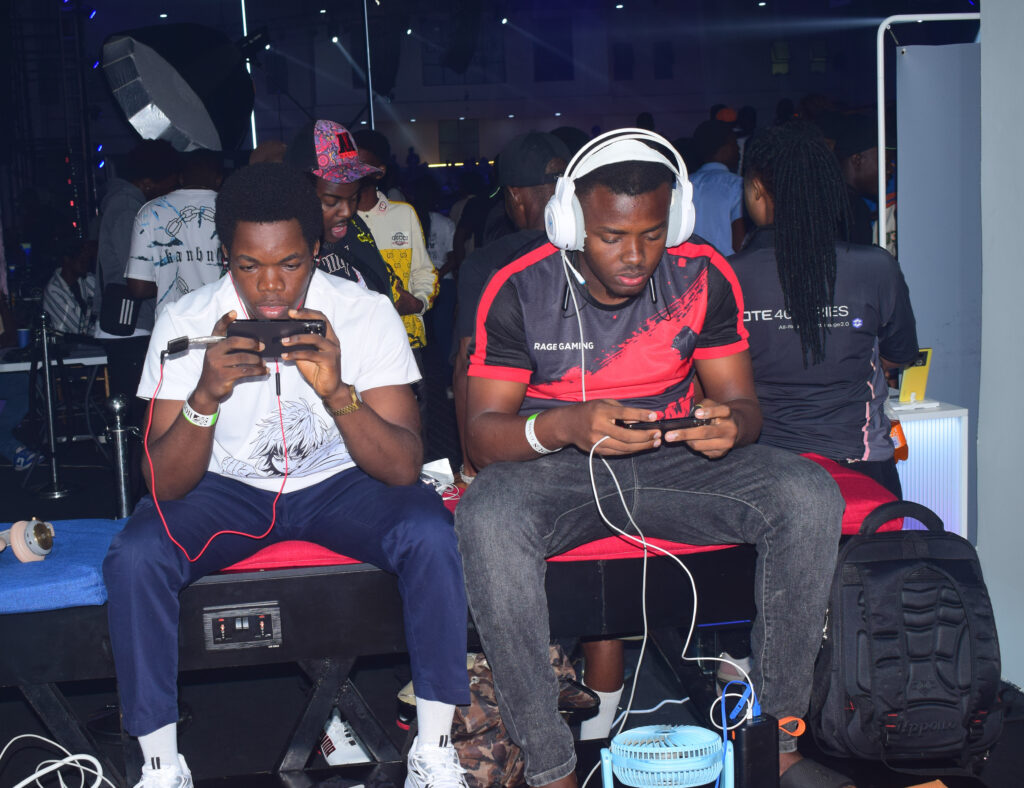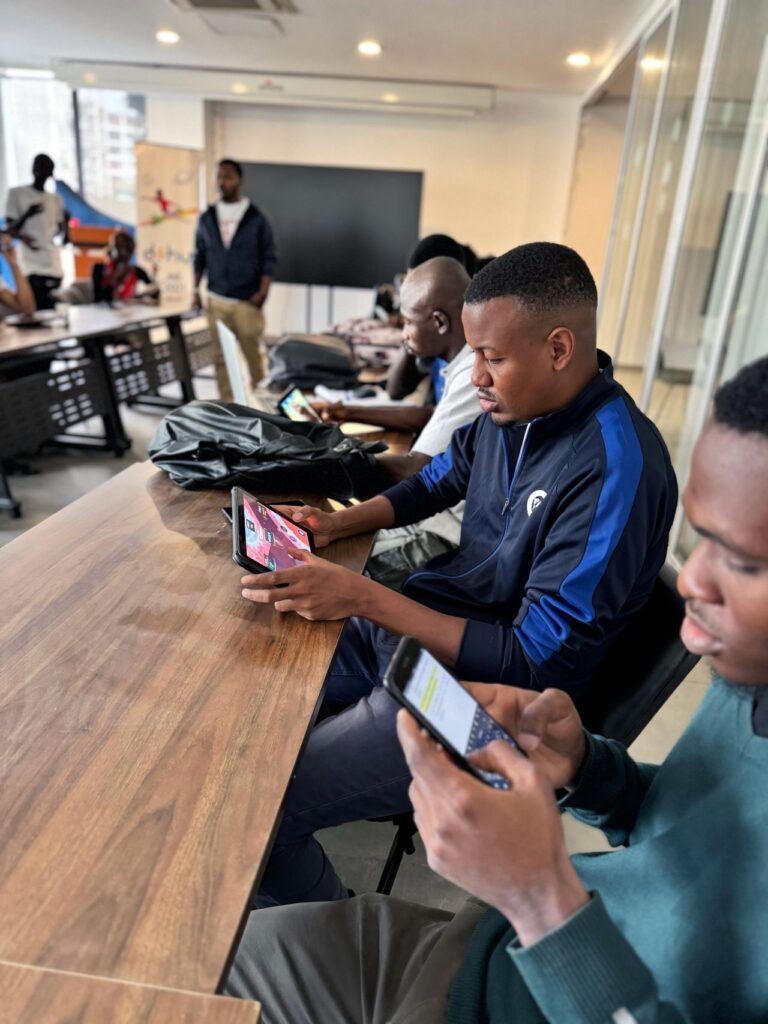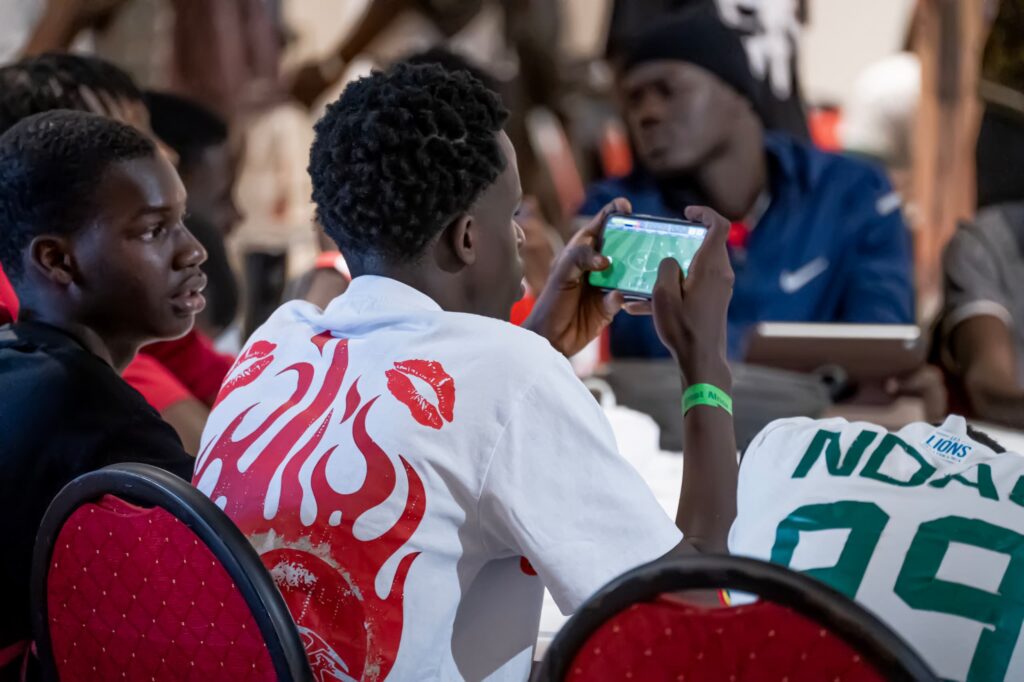The Role of Mobile Gaming in Expanding Esports in Africa

Iwaju -Rising Chef (Maliyo Games)
Esports, once a niche industry, has rapidly evolved into a global phenomenon, particularly gaining traction in Africa. With the rise of mobile gaming, the continent has discovered a new avenue to enhance its esports scene, tapping into a large market of young, tech-savvy individuals.
Mobile gaming is not only accessible but also more affordable than traditional gaming, making it a vital contributor to the expansion of esports in Africa. Africa is emerging as a new frontier for this digital revolution. Central to this growth is mobile gaming, which is reshaping the competitive gaming landscape on the continent and opening doors to a younger demographic. Esports Africa News explores the crucial role mobile gaming plays in the growth of esports in Africa, highlighting its impact, challenges, and future potential.
Mobile Gaming: The Gateway to Esports in Africa
Mobile gaming has proven to be the most accessible form of gaming in Africa, where smartphones are increasingly becoming more affordable. The flexibility and portability of mobile games make them ideal for regions where internet access is limited and console gaming can be out of reach for many.
Mobile gaming has surged in popularity across Africa, driven by the increasing availability of affordable smartphones and improved internet connectivity. Unlike traditional gaming, which often requires expensive consoles or gaming PCs, mobile gaming offers a more accessible entry point. For many African gamers, a smartphone is the only gaming device they own, making mobile games like Iwaju, PUBG Mobile, Call of Duty: Mobile, and Free Fire the cornerstone of their esports experience.


Telecommunication companies have also played a vital role in fostering this growth by providing affordable data bundles and partnering with game developers to introduce localized content. The rise of 4G networks, and in some regions 5G, has further reduced latency issues, a critical factor for competitive gaming. This infrastructural improvement has enabled gamers in cities and rural areas alike to participate in online tournaments, creating a more inclusive esports ecosystem.
According to a Statista report, the number of mobile gamers in Africa has skyrocketed, with billions of mobile devices in circulation. As a result, mobile gaming has provided a low-barrier entry point for esports, allowing a wide range of gamers to participate in competitions, enjoy a variety of games, and build a thriving community.
The Growth of Esports in Africa: A Snapshot

The uptake of mobile gaming in competitive esports in Africa has seen rapid growth in recent years. While traditionally dominated by regions like North America, Europe, and Asia, Africa’s mobile games esports scene is now developing its own identity. The rise of mobile gaming has been a catalyst for this expansion, allowing Africans to join the global gaming community. African game developers including Maliyo Games, Leti Arts and ChromPixel have all joined in to produce more mobile games producing more African themed games for the mobile games market.
Esports Africa News platform has reported consistent growth in esports activities across Africa, with mobile esports becoming a significant part of this trend. Countries like Nigeria, South Africa,Ghana and Kenya are home to large, active mobile gaming communities, with many gamers transitioning into competitive esports players.
Esports in Africa is experiencing remarkable growth, fueled by the accessibility and affordability of mobile gaming. With the proliferation of affordable smartphones and improved internet connectivity, competitive gaming has become increasingly popular across the continent. Mobile gaming, in particular, has emerged as a key driver, providing an entry point for millions of young, tech-savvy Africans.
Tournaments like the PUBG Mobile Pro League Africa and Free Fire Africa League are showcasing local talent and attracting global attention. However, challenges such as inconsistent internet access, high data costs, and limited infrastructure persist. Despite these hurdles, Africa’s youthful population and growing mobile-first approach are positioning the continent as a potential powerhouse in the global esports landscape.
As investments in esports infrastructure and community-building initiatives grow, Africa’s esports scene is set to thrive, paving the way for increased opportunities and global recognition.
Accessibility and Affordability: Mobile Gaming’s Impact

Mobile gaming has leveled the playing field, allowing individuals from diverse socioeconomic backgrounds to participate in esports. In a continent where disposable income is often limited, the affordability of mobile games compared to console or PC gaming has democratized access to competitive gaming. Entry-level smartphones, produced by brands specifically targeting African markets, have become sufficiently powerful to handle competitive games, enabling a wider audience to engage with this growing industry. Moreover, the portability of mobile gaming is a significant advantage.
Players can participate in competitive matches from virtually anywhere, eliminating the need for specialized gaming setups. This flexibility has contributed to the rapid adoption of mobile esports in countries like South Africa, Kenya, Nigeria, and Ghana, where burgeoning gaming communities are beginning to attract global attention. For many African gamers, the high cost of gaming PCs and consoles restricts their ability to participate in esports. In contrast, mobile phones are more affordable and widely accessible, offering a viable alternative. The widespread use of smartphones means that more individuals can afford to play esports, regardless of their financial background.

Mobile gaming also reduces the cost of entry for gaming competitions. With platforms like Africa Esports hosting tournaments that are accessible via mobile devices, players don’t need to invest in expensive equipment to compete at the highest levels. This opens up a pathway for young talent to rise through the ranks.
Mobile Esports: An Emerging Industry
The rise of mobile esports tournaments is another crucial aspect of the growth of mobile gaming in Africa. Big brands like Samsung and MTN are beginning to sponsor esports events, further establishing mobile gaming as a mainstream industry. Events like the Mobile Gaming League have grown exponentially, with participants from all over the continent battling it out in popular mobile titles.
Games like PUBG Mobile, Free Fire, Clash Royale, and Call of Duty Mobile have garnered huge followings in Africa, not just in terms of players but also in terms of viewers. Mobile esports competitions are streamed on platforms like YouTube and Twitch, bringing African talent to a global audience and increasing the visibility of esports on the continent.
Key Mobile Games Driving Esports Growth in Africa
Several mobile games have played a key role in driving esports in Africa, helping to establish a competitive gaming culture. Some of the most popular games include:
PUBG Mobile: This battle royale game has a massive following in Africa, with several tournaments organized for regional players.

Free Fire: Known for its easy-to-learn mechanics and quick play sessions, Free Fire has become a favorite in Africa’s mobile esports scene.

Safari City: Produced by a Nigerian based games developer has opened new doors for competitive gaming in Africa.

Crazy Ludo: A strategy-based mobile game that has gained a loyal esports following across the continent.
Each of these games has contributed to the growth of mobile esports in Africa, creating a competitive ecosystem that is growing year by year.

Crazy Ludo by Maliyo Games Video Trailer
Challenges Facing Mobile Esports in Africa

Despite its growth, mobile esports in Africa faces several challenges that hinder its potential. These include:
Limited Internet Access: While mobile phones are widespread, fast and reliable internet is still not accessible in many parts of Africa. This affects online gaming and esports competitions that rely heavily on stable internet connections.
Infrastructure Issues: Many African countries still lack the necessary infrastructure to host large-scale esports events. This includes everything from gaming arenas to reliable power sources.
Lack of Sponsorship and Investment: While there are growing sponsorship opportunities, the overall investment in the mobile esports industry in Africa remains limited compared to other regions. This lack of funding affects prize pools, event quality, and player development.
The Future of Mobile Gaming in African Esports

Despite these challenges, the future of mobile gaming in African esports looks promising. With mobile phones becoming more powerful and internet access improving, we can expect more players to participate in esports competitions. Furthermore, the continued rise of mobile game developers focusing on African audiences, like Tencent’s PUBG Mobile, will likely bring even more support to the scene.
Governments, private investors, and telecommunications companies are starting to recognise the potential of esports as a source of both entertainment and economic development. Mobile esports could become a key part of Africa’s digital economy, with more opportunities for gamers to earn a living through tournaments, content creation, and sponsorship deals.
Mobile gaming is set to revolutionise the future of esports in Africa, offering unparalleled accessibility and affordability. With a rapidly growing population of young, tech-savvy individuals and the widespread adoption of smartphones, mobile gaming has become the cornerstone of the continent’s esports ecosystem.
As internet connectivity improves and costs decrease, more players will have the opportunity to compete in tournaments, fostering a vibrant and inclusive gaming community. Investments in infrastructure, sponsorships, and professional leagues are expected to accelerate, creating pathways for African gamers to compete on the global stage.
Africa’s mobile-first approach positions it uniquely in the global esports market, with immense potential to redefine competitive gaming and establish the continent as a major player in the industry.
Mobile gaming is undoubtedly shaping the future of esports in Africa. With its affordability, accessibility, and the growing number of mobile gamers, Africa is poised to become a powerhouse in the esports industry. While there are challenges to overcome, the increasing investment, sponsorships, and infrastructure improvements suggest that the mobile esports ecosystem in Africa will continue to flourish.
For those looking to get involved, mobile gaming presents an exciting and accessible entry point into the world of competitive esports. Whether you’re a player, organiser, or sponsor, now is the perfect time to explore the ever-expanding world of mobile esports in Africa.





